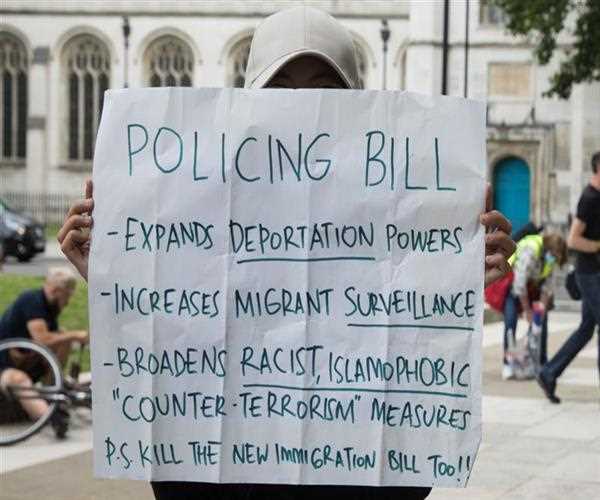
19-May-2023 , Updated on 5/19/2023 5:40:30 AM
Explore the Islamophobia and it's impact
In recent years, the world has witnessed a rise in Islamophobia, a term used to describe the fear, prejudice, and discrimination against Islam and its followers. Islamophobia affects millions of Muslims globally and has far-reaching consequences on individuals, communities, and societies as a whole. This view aims to delve into the roots of Islamophobia, explore its impact, and highlight the importance of countering this dangerous prejudice.
Defining Islamophobia
Islamophobia refers to the irrational fear, prejudice, and discrimination against Islam and Muslims. It is important to note that Islamophobia does not merely critique or disagree with aspects of Islam, but rather encompasses hostility, intolerance, and an overall negative perception of the religion and its adherents. Islamophobia manifests in various forms, such as hate crimes, biased media representation, social exclusion, and systemic discrimination.
Roots of Islamophobia
To understand the impact of Islamophobia, it is crucial to explore its roots. One of the contributing factors is a lack of knowledge and understanding about Islam. Many individuals rely on stereotypes, misinformation, and media portrayals that perpetuate negative narratives about Islam, reinforcing fear and prejudice.
Another factor is the influence of geopolitical events. Terrorist attacks committed by extremist groups claiming to act in the name of Islam have contributed to the stigmatization and marginalization of Muslims. These acts are often wrongly generalized to the entire Muslim population, perpetuating Islamophobia.
Impact on Individuals
Islamophobia has a profound impact on individuals who are targeted or subjected to its effects. Muslims may face verbal and physical abuse, discrimination in employment and housing, and profiling by law enforcement agencies. These experiences can lead to a sense of fear, anxiety, and alienation among Muslim individuals and communities.
Moreover, Islamophobia affects individuals' mental health and well-being. Constant exposure to negative stereotypes and discrimination takes a toll on one's self-esteem and can lead to depression, anxiety, and post-traumatic stress disorder (PTSD). The fear of being targeted or ostracized also restricts personal freedom and expression.
Impact on Communities
Islamophobia extends beyond individual experiences and affects entire Muslim communities. When a community is collectively targeted, it can lead to a breakdown of social cohesion, heightened tensions, and increased marginalization. Muslims may face social exclusion, limited access to education, healthcare, and employment opportunities.
Moreover, Islamophobia can hinder community integration and hinder the ability of Muslims to participate fully in society. This exclusion creates a sense of otherness, further perpetuating a cycle of prejudice and discrimination. It is important to recognize that Islamophobia not only impacts Muslim communities but also erodes the fabric of multicultural societies by promoting division and hostility.
Impact on Society
The impact of Islamophobia goes beyond individuals and communities, affecting society as a whole. Prejudice and discrimination undermine the principles of equality, tolerance, and human rights. When a particular religious or ethnic group is targeted, it sets a dangerous precedent that can be expanded to other marginalized communities.
Islamophobia also hampers social harmony and fosters a culture of fear and mistrust. This can lead to a breakdown in social cohesion, hindering the ability of diverse communities to work together and collaborate. The overall impact is detrimental to societal progress and the realization of inclusive and pluralistic societies.
Countering Islamophobia
Addressing Islamophobia requires collective efforts from individuals, communities, and governments. Education plays a crucial role in countering prejudice and stereotypes. Schools and educational institutions should provide accurate information about Islam, promoting intercultural understanding and empathy.
Media representation also plays a significant role. Journalists and media organizations should strive for unbiased reporting, avoiding sensationalism and the perpetuation of negative stereotypes. Promoting diverse voices and narratives can challenge existing biases and foster a more inclusive media landscape.
Interfaith dialogue and community engagement are vital in countering Islamophobia. Encouraging open discussions, cultural exchanges, and partnerships between different religious and ethnic groups can bridge divides and foster mutual respect. Building relationships based on shared values and common goals helps dispel misconceptions and foster a sense of unity.
Legislation and policies that protect religious freedom and combat discrimination are crucial. Governments should enact and enforce laws that promote equality, prohibit hate speech, and address systemic biases. Additionally, law enforcement agencies should undergo cultural sensitivity training to ensure fair treatment and eliminate profiling based on religious identity.
Furthermore, fostering interfaith alliances and collaborations with civil society organizations can create platforms for advocacy and promote inclusivity. Muslim-led initiatives, as well as collaborations with non-Muslim organizations, can help amplify marginalized voices, challenge stereotypes, and push for systemic change.
Lastly, individuals can contribute to countering Islamophobia by challenging their own biases and stereotypes. Engaging in self-reflection, seeking diverse perspectives, and educating oneself about Islam and its teachings can help break down prejudice. Supporting and standing in solidarity with Muslim individuals and communities is also crucial in creating an inclusive society.
Islamophobia is a pervasive issue with far-reaching consequences for individuals, communities, and societies as a whole. It is essential to recognize and understand the impact of Islamophobia, as well as the root causes behind it. Combating Islamophobia requires a multi-faceted approach that includes education, media representation, interfaith dialogue, policy reform, and individual efforts. By addressing Islamophobia, we can foster inclusive societies that respect and celebrate diversity, promoting social harmony and equality for all.

SEO and Content Writer
I am Drishan vig. I used to write blogs, articles, and stories in a way that entices the audience. I assure you that consistency, style, and tone must be met while writing the content. Working with the clients like bfc, varthana, ITC hotels, indusind, mumpa, mollydolly etc. has made me realized that writing content is not enough but doing seo is the first thing for it.
Join Our Newsletter
Subscribe to our newsletter to receive emails about new views posts, releases and updates.
Copyright 2010 - 2026 MindStick Software Pvt. Ltd. All Rights Reserved Privacy Policy | Terms & Conditions | Cookie Policy